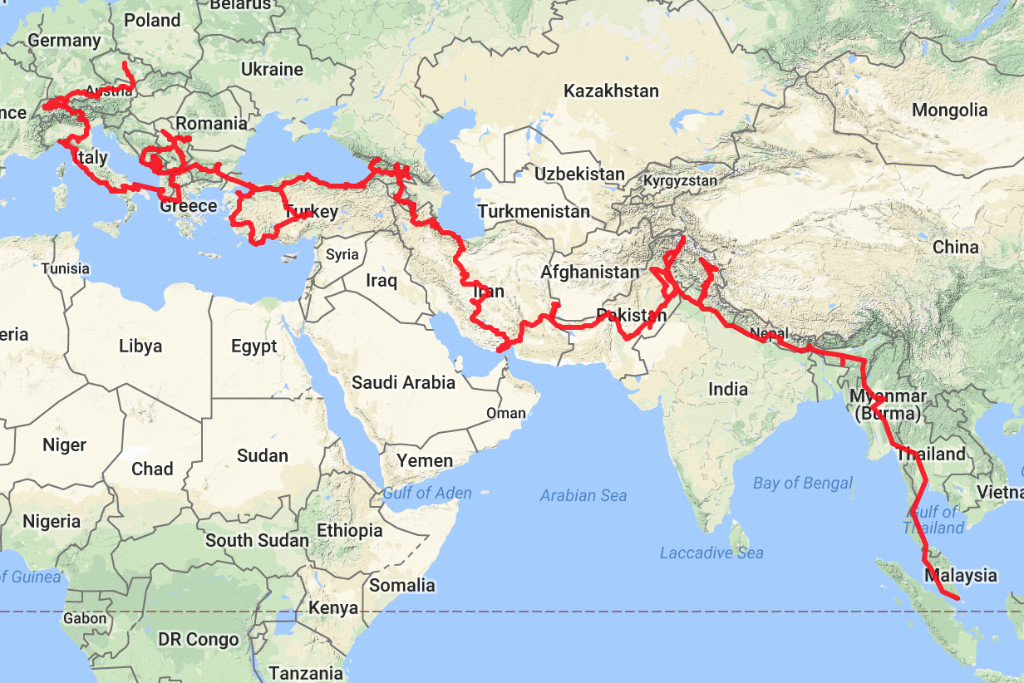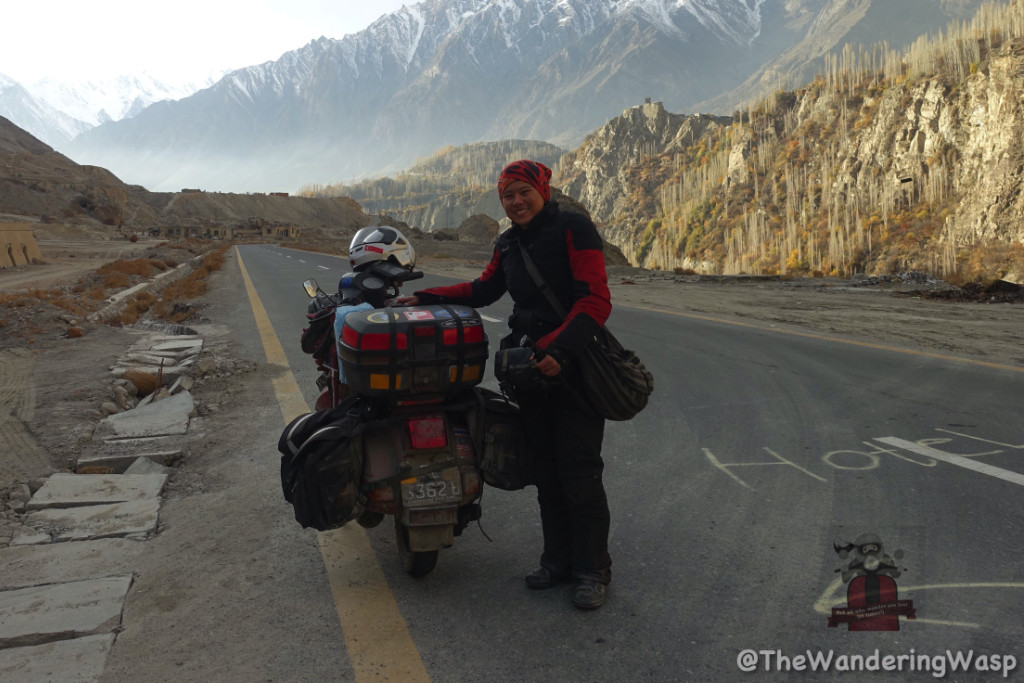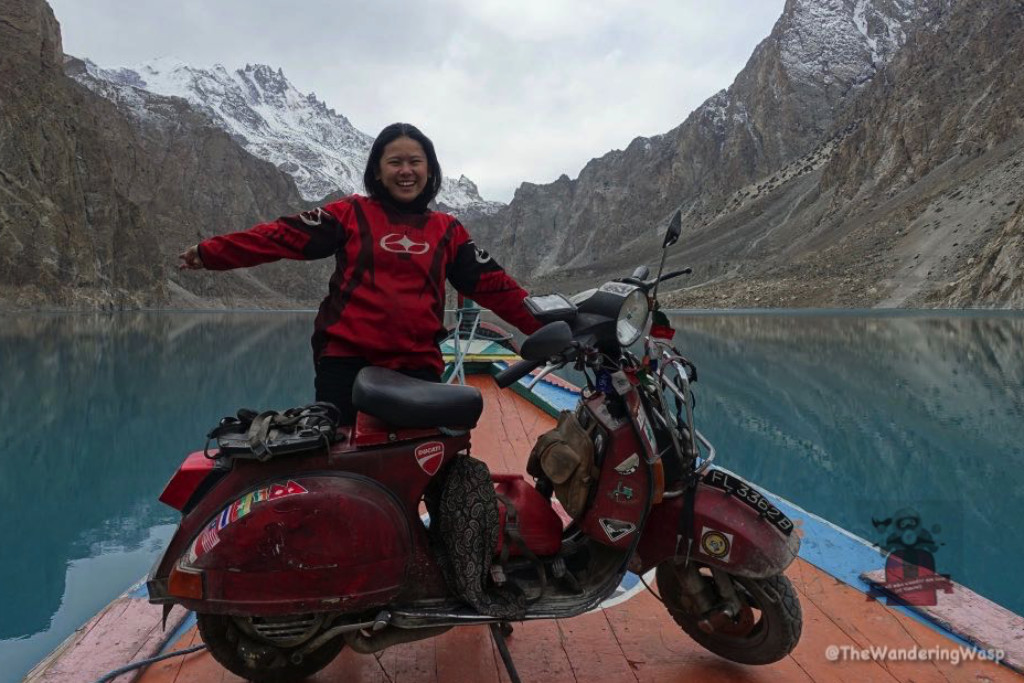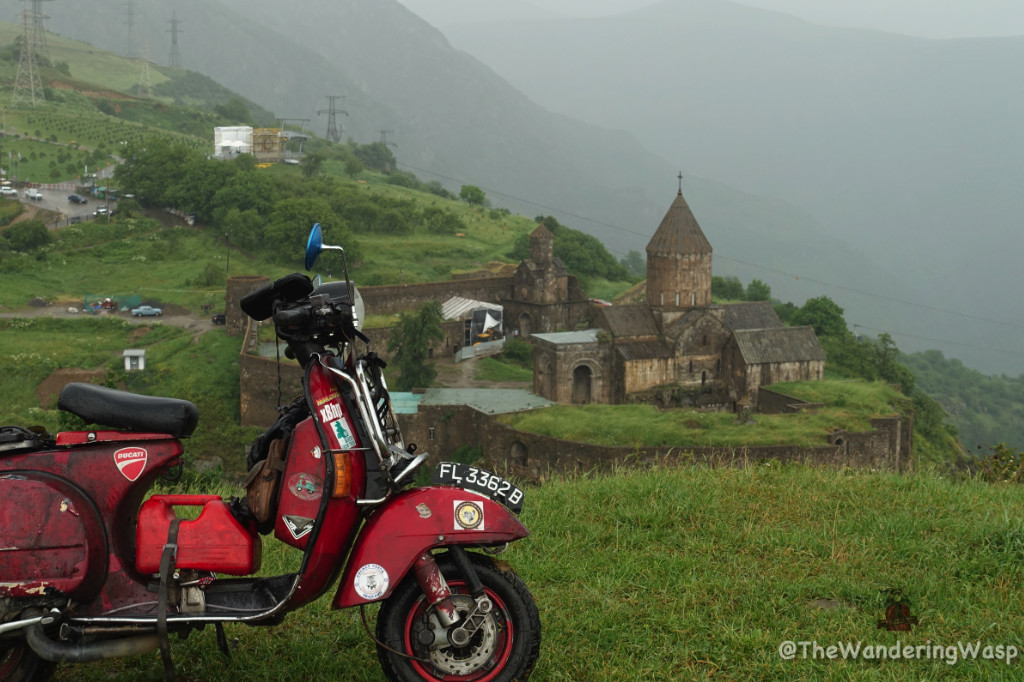Juvena Huang got her scooter license at the age of 19 and bought her first Vespa at 20. A few years later, in May 2015, she set off on a great journey with a Vespa Excel 150. She had set her mind on discovering the world and ended up riding through 25 countries in 27 months. In total, she rode the Vespa 44,000 kilometers and spent about $23,000 on the trip, which is about 20.000 Euros.
Which countries did Juvena Huang visit?
Her journey took her from Singapore to Europe. Meanwhile, Juvena Huang traversed Southeast Asia, South Asia, the Balkans and the Middle East. These countries were all included in the Vespa tour:
- Myanmar
- Malaysia
- Thailand
- India
- Nepal
- Iran
- Armenia
- Pakistan
- Georgia
- Turkey
- Bulgaria
- Macedonia
- Serbia
- Bosnia & Herzegovina
- Croatia
- Montenegro
- Albania
- Greece
- Kosovo
- Italy
- Liechtenstein
- Switzerland
- Austria
- Czech Republic
- Germany

How did the idea of the trip come about?
After a trip to Vietnam, the desire to travel for a longer period of time matured in her. But for a long time, the young woman lacked the courage to do so. Then the accident of a friend showed her how short life can be. This shock at the sudden loss of the friend prompted her to pack her bags and make her dream come true.
Preparation of the journey
Throughout the trip, her only means of transportation was her Vespa Excel 150. Of course, there’s not much room on a Vespa for a lot of luggage, but she managed to carry all her belongings for the trip on the scooter. She installed the luggage rack in advance, as well as a grip heater. However, she removed this again because it drained the battery too quickly. In addition to clothes, personal items, spare parts and tools, Juvena Huang also carried camping equipment to save on accommodation costs. In total, her luggage weighed no more than 50 kg thanks to her thoughtful packing skills.

The course of the journey
Even before Juvena Huang started the big tour, she did smaller tours to Malaysia or even Thailand. So she could gain experience for further routes. As mentioned before, she started her journey in Singapore and her first stops were Malaysia, Thailand, Myanmar. After exploring South Asia, the Middle East and the Balkans, she finally arrived in Europe. Her plans were to stay longer in Europe, but for family reasons she ended her tour in the Czech Republic.
On such a long trip, it’s not unheard of that she had a problem with the Vespa every now and then. But it was mostly minor problems like a broken mirror. Four times, however, she had to go to a workshop on the trip because the scooter didn’t run at all. Juvena Huang traveled to many places where it is very unusual for a woman to travel alone. However, the scooter earned her some respect. Throughout the trip, she met mostly nice and open-minded people. She did not need a visa in every country. She had made extra inquiries beforehand and preferred places where she didn’t need one. When traveling around the world, it is always important to find out in advance about the visa requirements of the continents so that there are no problems during the trip.
Information about the Vespa Excel 150
This model is very common in Southeast Asia and is very similar to the PX. It is considered the cheaper version of the PX. The scooter was first manufactured in Indonesia in 1980. The Excel was one of the most famous scooters in its time due to its electric starter. The Vespa Excel uses a 150cc two-stroke engine, a 4-speed transmission with the legendary Vespa monocoque body frame. It offers a lot of comfort and improved engine technology than previous models. The saddle is a one-piece long saddle for the passenger as well as the rider. There is also a mini airscoope to improve aerodynamics and a mini windscreen for that classic look.

Where is the Vespa after the journey?
Juvena Huang has more plans for traveling. Her Vespa is still in the Czech Republic and she would like to continue her journey on it. In Singapore, older scooters must be off the road by 2028. For this reason, she has deregistered the scooter as a vehicle in Singapore. Transporting it back would cost several thousand Euros and that would not be worth it. But it is not possible to simply re-register the Vespa in a European country, as it does not meet the Euro emission standards. As a classic car it would work, but the Vespa is not old enough for that. She is currently looking for a way to legally drive and park the scooter as a non-EU citizen.
If she doesn’t find a solution, she will give the scooter to a museum, which would surely please many people. She herself then buys a new Vespa directly in Europe, before it goes on a big tour again. Because there is still a lot she would like to discover. Juvena Huang wouldn’t be herself if she didn’t have more plans. One important plan of hers is to participate in the Mongol Rally.



